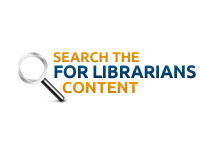Provided by the PA DPLA Planning Group Members
Aggregator – Software platform used for collecting and consolidating digital content into a single feed that can be easily ingested into the DPLA.
API – At its most basic, anAPI, or Application Programming Interface, is made up of a set of defined methods that someone can use to communicate with a (frequently complex) software system, and get back responses in a way that a computer (and, with some practice, a human) can understand. DPLA offers an API for developers who develop apps, so that they can query the DPLA system in interesting ways. See DPLA’s API page.
Content Hub – DPLA content hubs are large libraries, museums, archives, or other digital repositories that maintain a one-to-one relationship with the DPLA (i.e., do not go through service hub aggregator in order to participate in the DPLA project). The DPLA is now trying to keep those to a minimum, favoring service hubs for scalability purposes (see Service Hub).
Content Providers – Pennsylvania libraries, archives, and other cultural institutions that contribute digital object records to the PA-DPLA aggregator. A content provider could also be a group of institutions (e.g., pre-existing local consortium).
CONTENTdm – Proprietary digital collection management software (an OCLC product).
Creative Commons – Creative Commons is a nonprofit organization that enables the sharing and use of content via free legal tools (i.e., licenses). For example, libraries that publish digital content may give people the right to share, use, and even build upon it by publishing that content under a Creative Commons (CC) license. There are 6 different CC licenses to choose from. The CC license protects the people who use your content, so they don’t have to worry about copyright infringement, as long as they abide by the conditions you have specified. (http://creativecommons.org)
DPLA – Digital Public Library of America. The DPLA is a national digital library effort that indexes and displays digital content, making it accessible from a single platform and portal. (http://dp.la)
Dublin Core – The Dublin Core Schema is a set of vocabulary terms that can be used to describe web resources. The full set of Dublin Core metadata terms can be found on the Dublin Core Metadata Initiative (DCMI) website (http://dublincore.org) Dublin Core can be likened to a cataloging standard like AACR2 or RDA. It is very popular to describe objects in digital collections.
Hydra – Software platform used by institutions worldwide to provide access to their digital content. It is open source and free to use. (http://projecthydra.org/)
Metadata – Similar to the content in MARC tags of traditional library cataloging, metadata describes other data, providing information about an item. For example, an image may include metadata that describes how large the picture is, the color depth, the image resolution, when the image was created, what collection it belongs to, etc.
OAI-PMH – The Open Archives Initiative Protocol for Metadata Harvesting enables the exchange of data among digital repositories. (http://www.openarchives.org/pmh/) This is comparable to Z39.50 in the cataloging world.
PA Digital Collections Founders Group – Works with the Office of Commonwealth Libraries to coordinate statewide digital initiatives. Members include representatives from Access Pennsylvania/HSLC, Albright College, the Carnegie Library of Pittsburgh, the Free Library of Philadelphia, the Interlibrary Delivery Service of Pennsylvania, the Keystone Library Network, Office of Commonwealth Libraries/the State Library, the Pennsylvania Academic Library Consortium, Pennsylvania State University, Temple University, the University of Pennsylvania, the University of Pittsburgh, and the University of Scranton. This is sometimes called “The Philadelphia Group” because they first met in Philadelphia in August 2014.
PA-DPLA Metadata Group – Quality Control group specializing in communicating and promoting minimum standards and best practices in metadata for digital collections. Works directly with Content Providers, reviewing their metadata for consistency and conformity with agreed-upon standards. Ingests Content Providers’ records into the PA aggregator staging area, performs quality assurance checks, and gives final approval for inclusion into live PA aggregator.
PA-DPLA Planning Group – A sub-group of the PA Digital Collections Founders Group tasked with developing a plan for Pennsylvania to interface with the Digital Public Library of America (DPLA), and to form a PA-level DPLA Service Hub. The planning group can be reached at dplainpa@gmail.com.
PA-DPLA Standards Group – Maintains and communicates minimum content/collection criteria necessary to interface with DPLA. Works with the Metadata Group to ensure consistency of content descriptors. Monitors and advises on changes to standards and new schemas.
PA-DPLA Tech Hub – An organization that provides some of the technological infrastructure that powers the PA DPLA efforts. For instance, one of the Tech Hub will be running the PA DPLA aggregator platform.
PA-DPLA Technology Group – Technology subgroup 1: Implements and maintains PA-wide aggregator and other software tools needed to interface with the DPLA. Provides advice and recommendations on technical architecture, including open API’s, discovery services, etc. Technology subgroup 2: Explores repository solutions for hosting digital objects at the state level. Advises on digitization of primary materials regardless of format.
PADIGITAL – Open forum for library community discussion of all things digital in PA. Email list: padigital@listserv.albright.org.
Service Hub – DPLA service hubs are state, regional, or other collaborations that host, aggregate, or otherwise bring together digital objects from libraries, archives, museums, and other cultural heritage institutions.

